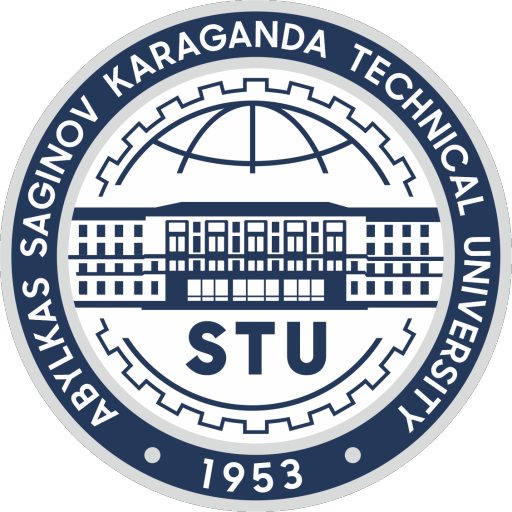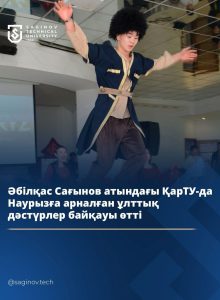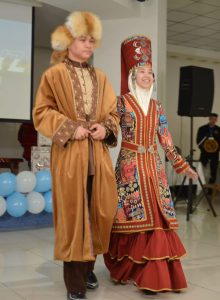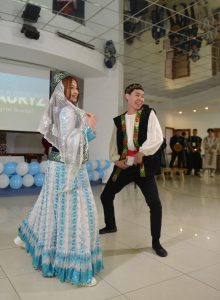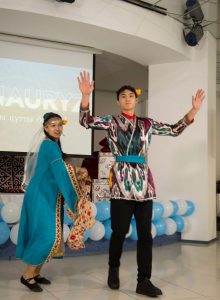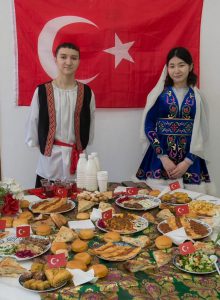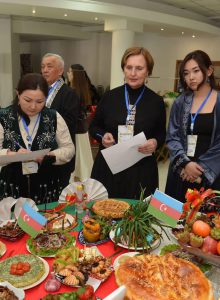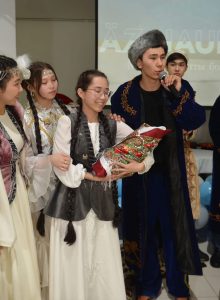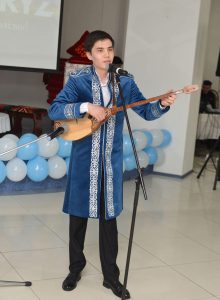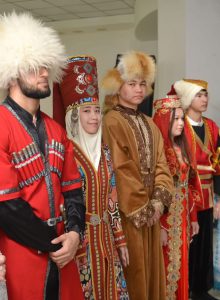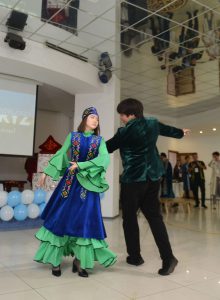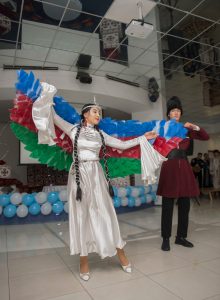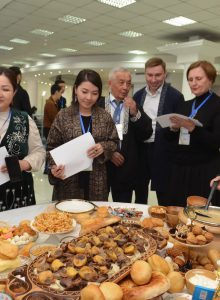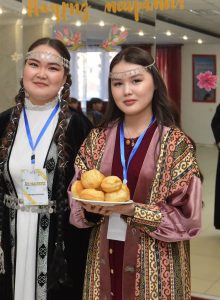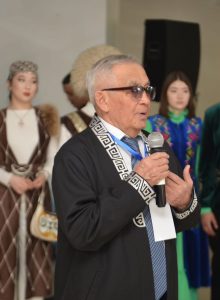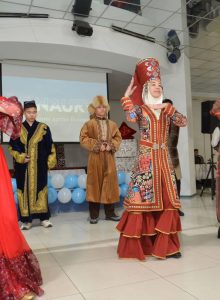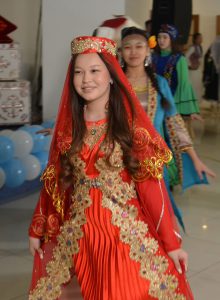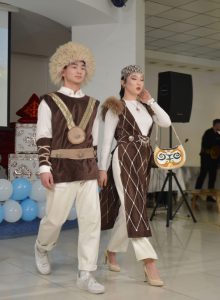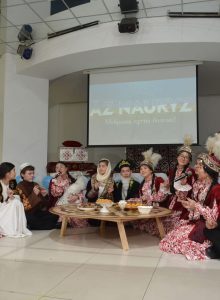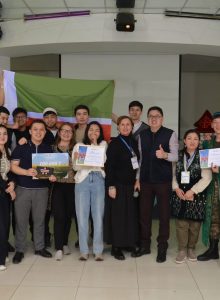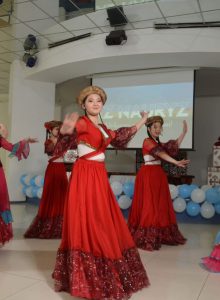We hardly have any holidays that would be celebrated as noisily and cheerfully as Nauryz. Today, even New Year’s Eve celebrations that are also deservedly considered among the most beloved holidays, not only by Kazakhstan citizens but also by millions of the other people on the planet, are inferior to it.
So, at Abylkas Saginov KTU, preparations for Nauryz are beginning to be made little by little. In their free time, students and teachers are busy developing a script, selecting national costumes, rehearsing musical numbers. And this spirit of Nauryz has been in the air since almost the beginning of March. But the holiday is always a great success!
To begin with, all the faculties held interesting events dedicated to Nauryz. And then national sports games were held in the University sports complex. They had barely managed to sum up their results when activists of the youth organization “Zhas Orda” invited everyone to the competition of national traditions dedicated to Nauryz.
On that day, the hall of the Polytechnic cafe, where that festive event took place, was a colorful spectacle. Not so much the festive entourage but the variety of national costumes that students and teachers were wearing. That alone showed their careful and respectful attitude towards representatives of any nationalities living in our Republic.
It is no coincidence that, addressing the participants of the event with a welcoming speech, Chairman of the Council for Spiritual and Moral Education of Abylkas Saginov KTU_Kairolla_Kyzyrov made a special emphasis on the fact that Nauryz is not only a Kazakhstan holiday. But in Kazakhstan it is celebrated by people of various ethnic groups, which is a further evidence of the our people unity. Quoting the words of President of the country Kassym-Jomart Tokayev from his speech at the recent Kurultai: “Where there is mutual understanding and respect, there will always be harmony”, he called for preserving this harmony and unity, friendship between peoples. This is the key to success in achieving all the intended goals.
Participants of the tradition competition come out onto the improvised stage. Who isn’t here: fox malakhais and chapans give away the representatives of the titular nation; papakhas and gazyrs for Caucasians; skullcaps for Uzbeks, followed by Turks, Uighurs, Tatars, Bashkirs, Turkmens… They are accompanied by representatives of the fair sex in even more beautiful national costumes.
But this is only the beginning. Because following the parade of national costumes, participants representing certain ethnic groups show unique mini-performances: they act out scenes of the bride’s matchmaking, the performance of rituals, treating guests, etc.
During the breaks between preparations for the next act, songs are performed by Almat Boranbay, Adil Nuraly and Nurlan Kuralbekov; dance groups delight the audience with their art.
One can only sympathize with the jury, who not only had to enjoy a truly spectacular spectacle but also distribute places in the competitions. To the untrained eye, all the performances deserved the highest marks.
It was probably even more difficult to make a decision on the national cuisine competition, where not only the quality and range of the cooked dishes were taken into account but also the serving and skillful presentation. But the jury is the jury to judge impartially and fairly.
As a result, in the nomination of Uzdik san korsetilimi, the Faculty of Innovative Technologies was recognized as the best; in Uzdik dastarkhan, the Transport and Road Faculty; in Uzdik shygarmashylyk oryndau, the Mechanical Engineering Faculty.
And in the team competition, the first place was taken by the team from the Armandastar Ordasy hostel; the second place was taken by the team from the Faculty of Architecture and Construction, and the third place was taken by the team from hostel No. 3.
Congratulations to the winners! We express our deep gratitude to the organizers: the Department of Youth Policy and the youth organization “Zhas Orda” for a wonderful event that combined educational, i.e. immersion in the world of national traditions and rituals, and educational goals.
